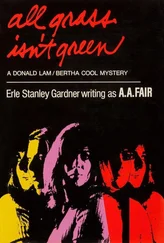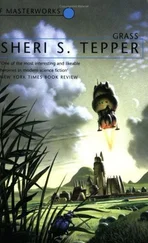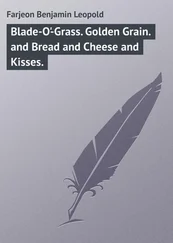On the whole I don't have much respect for this pseudo-scientific babble. But it's possible that one of the psychologists, a man who specialized in dysfunctional families, was not entirely off the mark when he attributed what he called Konny s “lonely act of desperation” to the defendant's growing up without a father, and dragged in my own fatherless origin and youth as a causative factor. The two other expert opinions pursued similar paths. Digging for dirt in the family backyard. In the end, the father is always to blame. Yet it was Gabi, with sole custody of the child, who did not stop him from moving from Mölln to Schwerin, where he ended up in Mothers clutches.
She, and she alone, is to blame. The witch with the fox stole around her neck. Always a will-o'-the-wisp, as a certain someone is well aware; he knew her from before, and I'm sure it was more than a casual acquaintance. Whenever he talks about Tulla… he gets all worked up… brings up mystical stuff… Some Kashubian or Koshavian water sprite, Thula, Duller, or Tul, is supposed to have been her godparent.
Her little head cocked, so that her stone-gray gaze lined up with the fox's glass eyes, Mother stared at the experts as they presented their findings. Sat there and listened unmoved as my failings as a father emerged as the pervasive theme of all the paper rustling — music to her ears. In the evaluations she appeared only in the margins. One assessment read, “The fundamentally well-intentioned care provided by the grandmother could not compensate for this at-risk youths need for parental attention. It seems probable that the grandmother's traumatic experiences, such as her survival of the disaster while pregnant, as well as her delivery in sight of the sinking ship, on the one hand made a powerful impression on her grandson Konrad Pokriefke, while on the other hand they had a disquieting effect because of his powerful imaginative participation in these events…”
The defense attorney attempted to extend the line taken by the expert witnesses. This earnest man of my own age, hired by my ex, had not succeeded in gaining Konny s confidence. Whenever he spoke of an “unpremeditated, unintentional act,” and attempted to downgrade the murder to mere manslaughter, my son negated all his defender's efforts by offering up voluntary confessions: “I took my time and was perfectly calm. No, hate played no part in this. My thoughts were entirely practical. After the first shot to the stomach, which was aimed too low, I aimed the other three shots very carefully. Unfortunately with a pistol. I would have liked to have a revolver, like Frankfurter.”
Konny presented himself as the responsible party. A gangly youth who had shot up too quickly, he stood there, with his glasses and curly hair, as his own accuser. He looked younger than seventeen but spoke as precociously as if he had taken a crash course in life. For instance, he refused to accept the notion that his parents shared his guilt. Smiling considerately, he said, “My mother is okay, even if she did get on my nerves with her constant harping on Auschwitz. And the court should quickly put my father out of its mind, as I've been doing for years — just forget him.”
Did my son hate me? Was Konny even capable of hate? Several times he denied hating the Jews. I am inclined to speak of Konny's matter-of-fact hate. Hate turned down low. An eternal flame. A hate devoid of passion, reproducing itself asexually.
Or perhaps the defense attorney was not mistaken when he presented the fixation on Wilhelm Gustloff that Mother had caused as a search for a father substitute? He offered the fact that the Gustloffs had remained childless. To a needy Konrad Pokriefke, this discovery had offered a gap that could be filled virtually. The new technology, the Internet in particular, permitted such an escape from youthful loneliness.
It seemed to speak for the accuracy of this portrayal that when the judge allowed Konny to address this point, Konny spoke with enthusiasm, even warmth, of the “martyr.” He said, “After my research revealed that Wilhelm Gustloff's commitment to societal change was influenced more by Gregor Strasser than by Hitler, I saw him as my sole model, which was expressed many times and unmistakably on my Web site. It is to the martyr that I owe my inner discipline. To avenge him was my sacred duty!”
When the prosecutor then questioned him quite insistently about the reasons for his despising the Jews, he said, “You have that all wrong. In theory I have nothing against the Jews. But like Wilhelm Gustloff, I hold the conviction that the Jew is a foreign body among the Aryan peoples. Let them all go to Israel, where they belong. Here they cannot be tolerated, and there they are urgently needed in the struggle against a hostile world around them. David Frankfurter was totally right when he made the decision to go to Palestine as soon as he was released. It was perfectly fitting that he found a job in the Israeli ministry of defense later.”
In the course of the trial one could gain the impression that of all those who spoke, only my son was speaking his mind. He got to the point quickly, kept sight of the larger issues, had a solution for everything, and brought the case into focus, while the prosecution and the defense, the trinity of expert witnesses, as well as the presiding judge, the associate judges, and the juvenile magistrates were all groping around, searching for motives, invoking God and Freud as guides. They tried repeatedly to portray the “poor young man” as a victim of social circumstances — a failed marriage, a skewed school curriculum, and a godless world — and finally even to declare him guilty of “the genes passed down to Konrad from his grandmother, by way of his father,” as my ex had the gall to theorize.
Next to nothing was said about the actual victim, the almost-graduate Wolfgang Stremplin, who had transformed himself online into the Jew David. He was left out of the picture in embarrassment, figuring only as a target. The defense attorney even suggested that he could be charged with provoking trouble by misrepresenting the facts. Although the idea that Stremplin had only himself to blame remained unspoken, it lurked behind casual remarks such as, “The victim veritably offered himself,” or, “It was more than irresponsible to translate the Internet conflict into real life.”
At any rate, the perpetrator received sizable doses of compassion. That probably explains why the Stremplins left town before the verdict was announced, but not before they had assured Gabi and me, in a cafe across from the courthouse, that they certainly did not want to see Konrad punished too harshly, and their son would no doubt have concurred. “We see ourselves as completely free of anything that might amount to a desire for revenge,” Frau Stremplin said.
If I had been there simply on a professional basis, as a journalist, I would have criticized the reduced finding of manslaughter as “too lenient,” if not as a “miscarriage of justice.” As it was, leaving my obligation as a journalist aside and concentrating entirely on my son, who received his sentence of seven years in juvenile detention without emotion, I was horrified. Lost years! He will be twenty-four if he has to serve the entire time. The daily contact with criminals and genuine right-wingers will harden him, and once he is freed, he will presumably commit another crime and land in jail again. No! This verdict cannot be accepted.
But Konny refused to take advantage of the opportunity to appeal that his lawyer pointed out to him. I can only repeat what he is supposed to have said to Gabi: “Hard to believe that I got only seven years. They slapped eighteen years on the Jew Frankfurter, though of course he served only nine and a half…”
He didn't want to see me before he was taken away. And while still in the courtroom, he hugged not his mother but his grandmother, who reached only to his chest, even in her spike heels. When he had to go, he glanced around one more time; perhaps he was looking for Davids or Wolfgangs parents and realized they were missing.
Читать дальше











